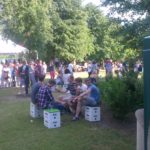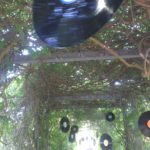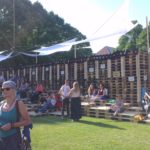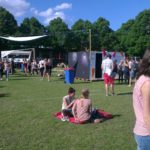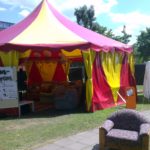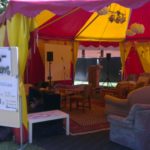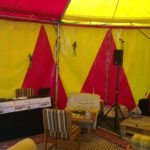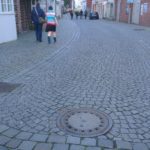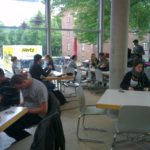This week we set out to explore the material archive we have at Deckspace for the print, image and online records relating to SPC origins. Backspace was open and operational throughout 1996-2000 a period which primed us for so much we have experienced in the years that followed. Independent media production and political action gained new strengths from Internet based communication and we all had an experience of dynamism in the rush of attention on some of the work we produced and the reality of re-generation in the inner cities that eventually closed the space. Before that moment passed so much flowed through, around and over us on its way to the future it was hard to capture.
 Javier arrived bang on time for the start of the session at 11am so we had plenty of opportunity to discuss current work and indulge in a little nostalgia for 1999-2003 during the early days of indimedia London and our adoption of Linux. He is currently campaigner at Open-Rights group as well as helping establish a bi-lingual freeschool in Brighton demonstrating an enduring enthusiasm and commitment to a wide scope of civic and political action. The following data dump of what’s new, related and essential in the field of archivism, rights and digital activism took place in a stream of consciousness hard to account for now. (ta for the list Javi !) We certainly talked a while about DIY book and newsprint scanners and the Free Births Deaths and Marriage register projects.
Javier arrived bang on time for the start of the session at 11am so we had plenty of opportunity to discuss current work and indulge in a little nostalgia for 1999-2003 during the early days of indimedia London and our adoption of Linux. He is currently campaigner at Open-Rights group as well as helping establish a bi-lingual freeschool in Brighton demonstrating an enduring enthusiasm and commitment to a wide scope of civic and political action. The following data dump of what’s new, related and essential in the field of archivism, rights and digital activism took place in a stream of consciousness hard to account for now. (ta for the list Javi !) We certainly talked a while about DIY book and newsprint scanners and the Free Births Deaths and Marriage register projects.
The Collection Trust | Europeana | MailPile | Hub of All Things | British Newspapers | Leap

One aspect of the workshops is to dig through the accumulated archives (boxes) containing not least, posters, flyers and stickers for the J18 Carnival Against Capitalism. This crowned an golden period in Backspace when it was used as the first ever Indimedia Centre to help articulate the event and from where a coordination of videos arriving by cycle courier from the City of London actions were streamed to the worlds public via SPC servers.
 Giovanni d’Angelo was one of the key backspacers and also joined us again for further excavations as we distilled the stored materials into specially cleared shelves in preparation for closer examination and processing. Before long tables already loaded with lunch debris are joined by contents of the cd racks and VHS silos. The Art for Networks boxes brought up from bitspace featured OWN (in it’s earlier form as POD toolbox), Blink (our iteration of Frequency Clock) and Consume the Net were all featured in the exhibition alongside that of the many contributions curated by Simon Pope in 2002.
Giovanni d’Angelo was one of the key backspacers and also joined us again for further excavations as we distilled the stored materials into specially cleared shelves in preparation for closer examination and processing. Before long tables already loaded with lunch debris are joined by contents of the cd racks and VHS silos. The Art for Networks boxes brought up from bitspace featured OWN (in it’s earlier form as POD toolbox), Blink (our iteration of Frequency Clock) and Consume the Net were all featured in the exhibition alongside that of the many contributions curated by Simon Pope in 2002. ![]()
 Adnan brought along newly acquired NFC/RFID tag writer for misc cards and stickers we have yet to activate but which form the publication and promotion component of our research program. Alexei Blinov, long term collaborator at SPC and instrumental to so much technical practice and support to so many arrived reminding us of his Broom project which utilised similar RFID readers and to help us round off the days work with beer before joining us at Exploding Cinema show in Brixton.
Adnan brought along newly acquired NFC/RFID tag writer for misc cards and stickers we have yet to activate but which form the publication and promotion component of our research program. Alexei Blinov, long term collaborator at SPC and instrumental to so much technical practice and support to so many arrived reminding us of his Broom project which utilised similar RFID readers and to help us round off the days work with beer before joining us at Exploding Cinema show in Brixton.
We discussed the GCHQ/NSA big data gathering concerning the change within legislation. The Criminal Justice Act, which was introduced 10 years ago by the British government in order to prevent free parties and festival initiated a mass movement of resistance (up to j18). Mark Harrision stated in an interview by Neil Transpontine (in the last edition of datacide), that “the Criminal Justice Bill was rushed in – and this drove much of the dance music scene back into the hand of The Industry”. Might Eben Moglen’s Freedom Box be a way out?

